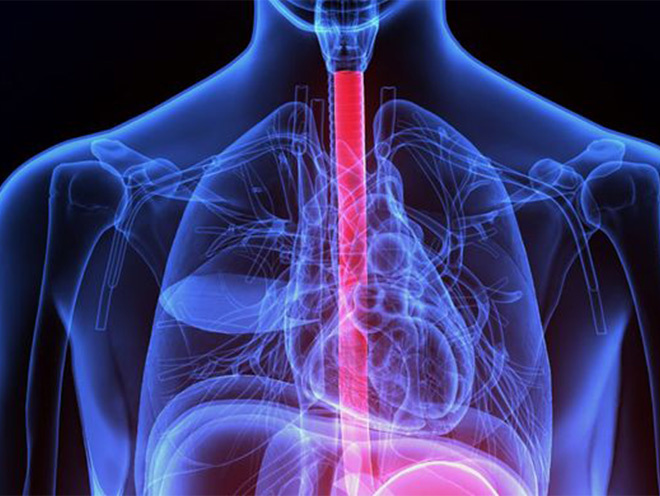 |

Treating esophageal cancer in St. Stamford Modern Cancer Hospital Guangzhou
In St. Stamford Modern Cancer Hospital Guangzhou, we provide esophageal cancer patients with 18 advanced anticancer technologies and high quality services, and we will try our best to help them improve their living quality, relieve their pain and prolong their survival time. The MDT (Multidisciplinary Team) of St. Stamford Modern Cancer Hospital Guangzhou will make therapeutic plan for esophageal cancer patients based on their condition. Combining minimally invasive therapies with historic traditional Chinese medicine, esophageal cancer patients can avoid the suffering of traditional operation, chemotherapy and radiotherapy. Meanwhile, experts will monitor the whole treatment, and adjust timely to improve the efficacy.
For more knowledge about cancer, please click online doctors for consultation.
What is esophageal cancer?
Esophageal cancer is a common gastrointestinal tumor, and about 300,000 people die of esophageal cancer every year worldwide. Typical symptoms of esophageal cancer are progressive dysphagia, with difficulty in swallowing dry food, semi-liquid food, and finally water and saliva. Data from the World Cancer Report indicate that 572,000 people were newly diagnosed with esophageal cancer and 509,000 died from esophageal cancer in 2018.
So can middle and late-staged esophageal cancer be cured? Minimally invasive techniques with little side effects and trauma can help bladder cancer patients avoid surgical resection, avoid suffering from traditional radiotherapy, and effectively prolong the survival period.
For more knowledge about cancer, please click online doctors for consultation.




What are the symptoms of esophageal cancer?
Early symptoms of esophageal cancer are not obvious. Nearly half of the esophageal cancer patients have found metastatic cancer when they were diagnosed. And the survival rate after surgery is only 25-40%.Therefore, knowing well of esophageal cancer is helpful for early detection and survival rate improvements.
The followings are some signs of esophageal cancer:
Foreign substance sensation in the esophagus, choking sense when swallowing;
Burning, needling or dragging sensation of chest bone when swallowing;
Impossible feeding (not able to eat) and companied with vomiting, upper abdominal pain, weight loss;
Obvious malnutrition, cachexia etc.
To one’s attention, the above-mentioned symptoms are not only for esophageal cancer, and may also refer to other diseases. No matter what situation it is, go to standardized hospital for related examination and diagnosis.
For more knowledge about cancer,please click online doctors for consultation.
What methods can be applied for diagnosis?
Fiberendoscopy: it is widely used for examining digestive tract disease;
Digestive tract endoscopic ultrasonography: it can detect the depth of the lesion’s invading extent to the esophageal wall; measure the abnormally enlarged lymph node outside esophageal wall etc.
X-ray barium meal examination: it can detect the lesion position, the length and the obstruction condition; meanwhile, it can also confirm if cancer cells have invaded outward of the esophagus or not;
CT examination: CT scan can clearly indicate the relation between the esophagus and adjacent mediastinum, but it can hardly detect early esophageal cancer. Combining CT with X-ray examination is very helpful for diagnosing esophageal cancer.
Esophageal exfoliative cytology examination:easy and convenient, causing little pain, it is the prime method for the diagnosis of esophageal cancer.
For more knowledge about cancer, please click online doctors for consultation.
Stages of esophageal cancer
Stage 0: early stage esophageal cancer, it is also called primary esophageal cancer whose cancer cell is just limited to esophageal cuticular layer, without any malignancy changes or invasion to other lymph nodes and organs; so the other surrounding tissues are still normal, in this stage.
Stage I: malignant cells have already invaded into other tissues underneath the cuticular layer. It emerged in the lamina propia or mucous membrane substratum, but had not invaded into the muscle layer yet. Cancer cells won’t spread to lymph node or other organ in this stage, either;
Stage II: cancer cells have invaded into lymph nodes but not into other distant organs;
Stage III:esophageal cancer has invaded to the adjacent tracheas but still no distant metastasis occurs;
Stage IV: esophageal cancer has transferred to many other distant organs through blood circulation, like liver, bone, or even head.
For more knowledge about cancer, please click online doctors for consultation.